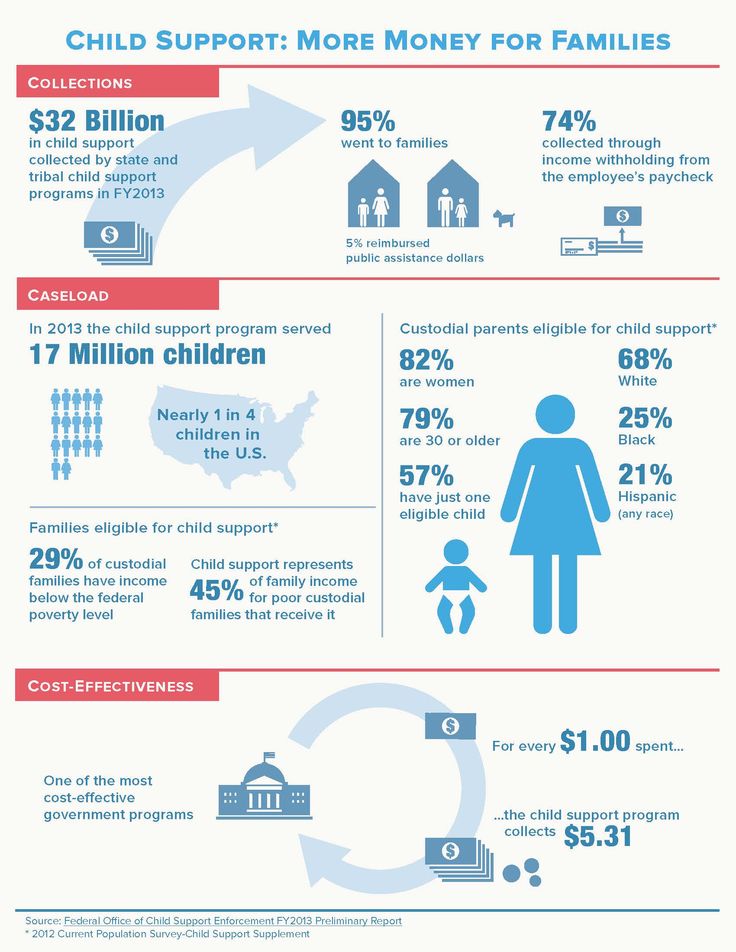How do courts decide child custody
How Does Court Decide Custody?
In this article
- Types of Child Custody
- How Is Custody and Visitation Determined?
- The "Best Interests of the Child" Standard
- What Determine the Child's "Best Interests"?
- Applying Child Custody Factors
- What Is Reasonable Visitation?
- Custody and Visitation If You Are Unmarried
- What is Commonly Included in a Parenting Time Order?
- Getting Court Approval
Following a divorce or a break-up, issues regarding child custody and visitation can get contentious for parents. So how do judges and courts determine custody and visitation rights? Each state has different laws and their courts have different practices, so we recommend asking a custody lawyer in your state about your particular case.
Here is a look at the standard that applies and some of the factors courts consider when deciding which parent gets custody of children.
Types of Child Custody
In many states, courts will use different terms for child custody orders, such as 50/50 custody, full custody, joint physical custody, or shared parenting situations, then determine the percentage of time that the child will spend with each parent.
Physical custody refers to the allocation of time spent physically with each parent. Legal custody refers to the ability to make day-to-day decisions in a child's life. The preference in most cases is joint legal custody or shared parenting so that each parent has an equal say in their child's health, safety, and general welfare.
Child custody and visitation rights vary according to the state you live in and file. For example, child custody in California is ordered as legal custody and physical custody. Legal custody can be joint or sole and physical custody can be joint or sole or primary. In Texas, child custody is referred to as conservatorship, which can be either joint managing or sole managing.
How Is Custody and Visitation Determined?
Determining custody usually involves making some type of parenting plan that both parents agree to and send to the court. If the parties can't agree on a parenting plan, then the court will listen to arguments from both parents and then make a decision.
Ultimately, what is most important for the court to decide is the basic schedule with each parent that the child will follow. This schedule is decided as part of the custody and visitation decision as a whole, and incorporated into the divorce decree or as an addendum to it.
If the parents are able to agree to the custody and visitation schedule and terms, then they may avoid any court decisions other than approval or disapproval as part of finalizing their divorce decree. It is common for parents to come up with creative options that fit their family instead of risking an uncertain outcome in court.
The "Best Interests of the Child" Standard
In making any decision regarding how much time a child will spend with either parent, the court will always make that determination based upon the "best interests of the child" standard. Courts consider the living situation of both parents and make custody and visitation decisions with the goal of fostering the child's overall happiness, physical security, emotional well-being, and overall development.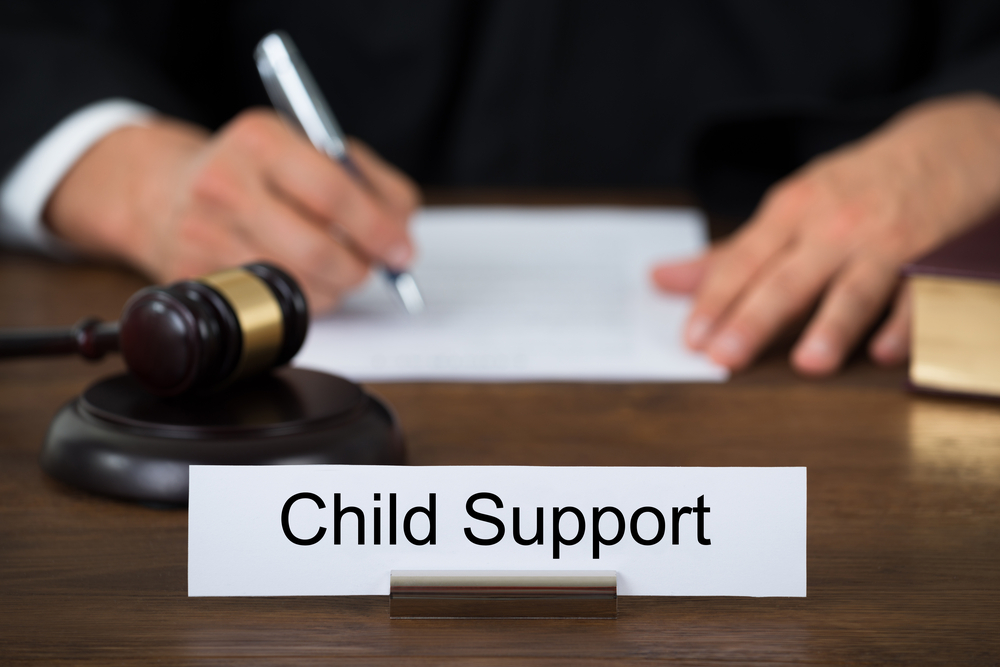
As with custody decisions, the court applies a variation of the best interests standard when making visitation and parenting time decisions. Custody and visitation decisions are often made together for a full application of the state's best interest factors.
The factors that are considered as part of the child's best interests are different in each state. To understand the applicable child custody law in your area, it is best to consult with a family law attorney experienced in custody and visitation rights.
What Determine the Child's "Best Interests"?
What will courts look at to determine what is in a child's best interests? That could depend on where you live. While judges in all states apply the best interests of the child standard, the factors that actually make up the standard may vary from state to state.
There is typically no one factor that guides a judge's custody decision; rather, the judge makes a child custody decision based on a combination of several different factors that contribute to the "best interests of the child.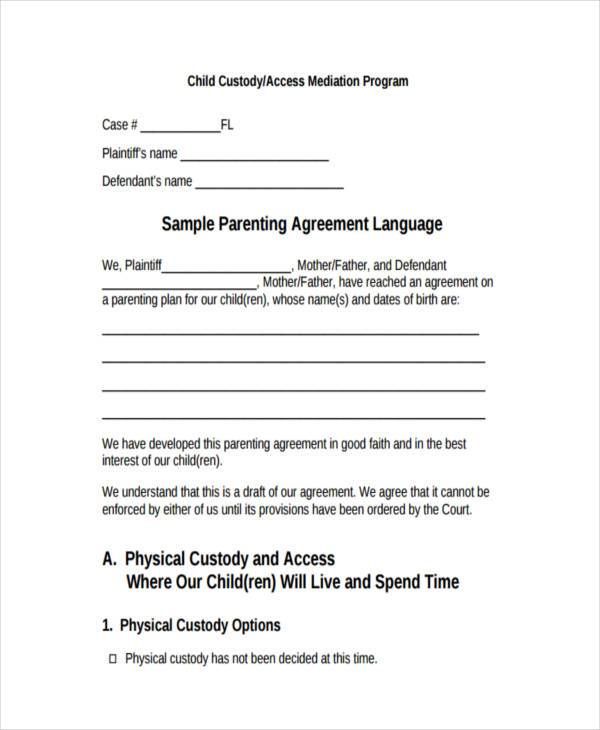 " Common factors that a judge considers in making custody and visitation decisions include:
" Common factors that a judge considers in making custody and visitation decisions include:
- The child's preference, if state law allows and the child is above a certain age, usually about 12 to 14 years of age
- The child's age and gender
- Any special emotional or medical needs of the child
- The relationship between the child, parents, and any other children in the household
- The parent's mental and physical health, including evidence of drug or alcohol use or abuse
- The parent's lifestyle, stability, and ability to financially provide basic necessities for the child
- Any pattern of domestic violence in the home, or evidence of excessive discipline, emotional abuse, or child/sex abuse
- The child's current living situation and routine, which might include childcare providers, school and extracurricular activities
- The emotional, social and emotional impact on the child if a custody change occurred
Typically, the judge will apply the relevant factors to cases on an individual basis, as every family is unique. For example, if a father's primary reason for wanting custody is that the mother has moved 10 times in the last two years and the child has been repeatedly moved from school to school. The father claims the moving has affected the child's academic performance. The judge may evaluate factors such as the mother's lifestyle and stability and the impact of a change on the child and the child's educational situation.
For example, if a father's primary reason for wanting custody is that the mother has moved 10 times in the last two years and the child has been repeatedly moved from school to school. The father claims the moving has affected the child's academic performance. The judge may evaluate factors such as the mother's lifestyle and stability and the impact of a change on the child and the child's educational situation.
Applying Child Custody Factors
Although many people think that once a child reaches a certain age, they can decide where to live, that's not entirely the case. A child's custody preference is simply one factor to consider, and while some states may place more emphasis on that factor than others, a judge is highly unlikely to allow the child to make all of the decisions regarding custody and visitation rights.
The Child's Preferences
Rather, a child's preferences are simply one of many factors that the judge must take into account in making a custody determination. Furthermore, the weight that the judge gives to the child's preferences may depend in large part on the child's age. While a 6-year-old may not be able to articulate a logical reason for their preference, a 15-year-old's wishes may carry greater weight in a judge's custody decision, depending on the circumstances and the reasons for the child's preference.
Furthermore, the weight that the judge gives to the child's preferences may depend in large part on the child's age. While a 6-year-old may not be able to articulate a logical reason for their preference, a 15-year-old's wishes may carry greater weight in a judge's custody decision, depending on the circumstances and the reasons for the child's preference.
Does a Parent's Gender Determine Custody?
While a parent's gender historically was taken into account in some states, there once was a preference for awarding custody of young children to their mothers, no such preference exists today. A judge will assess the fitness of both parents to be the child's custodian, without regard to the parent's gender.
Expert Evaluations
Finally, because not all judges are experts in family relations, a judge may call on a guardian ad litem, social worker, custody evaluator, or mental health care professional to investigate and evaluate the family in order to make a custody recommendation to the court. The judge will often rely on these experts who not only have specialized knowledge in the field, but who have also worked more closely with the family members, observed their interactions, and gathered relevant information.
The judge will often rely on these experts who not only have specialized knowledge in the field, but who have also worked more closely with the family members, observed their interactions, and gathered relevant information.
What Is Reasonable Visitation?
Reasonable visitation or reasonable parenting time is often granted to parents in child custody agreements. However, this usually does not mean there are specifics and the parents can determine the terms on their own, according to what they consider "reasonable". Unfortunately, this could mean the custodial parent dictating terms that the non-custodial parent often has no control over.
On the other hand, a fixed visitation schedule would include specific times and dates for visitation so there's no room for any confusion or disagreement. This schedule is usually ordered by a judge.
Custody and Visitation If You Are Unmarried
If you were never married to the other parent, the proceeding will go somewhat differently.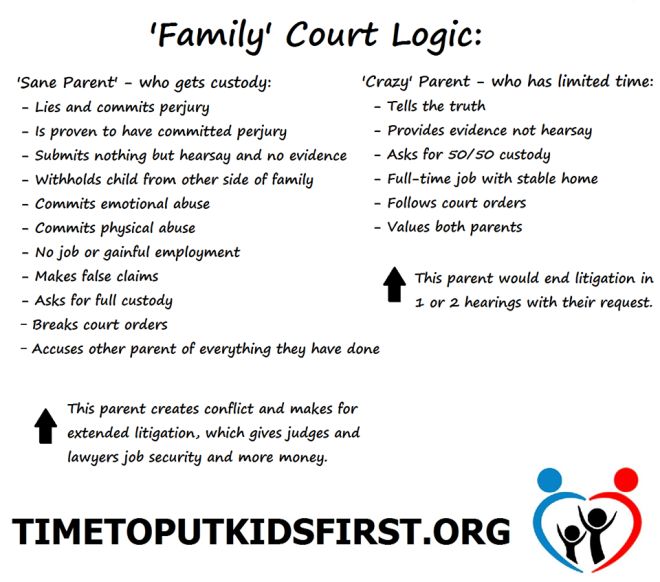 The same factors are at issue, specifically the best interests of the child. However, you will not have to consider the other issues that are usually decided as part of a divorce including property division and spousal support.
The same factors are at issue, specifically the best interests of the child. However, you will not have to consider the other issues that are usually decided as part of a divorce including property division and spousal support.
Depending on the law in your area, if you have not already established it, paternity may be a part of the proceeding to establish the original custody and parenting time order. Paternity can be established in a few different ways and your local laws govern what the courts will require.
What is Commonly Included in a Parenting Time Order?
A parenting time or visitation order should be tailored to achieve what is best for your children and best for your family. Any unique considerations that you want to be addressed can be covered in the agreement. The court can make basic decisions, but typically courts tend to shy away from getting too creative without the input of the parents.
While the details covered in your parenting agreement will be specific to your situation, there are a few issues your parenting agreement should address, such as:
- Custody labels, if applicable, such as who has physical custody and whether it is sole custody or joint
- Custody labels, if applicable, for legal custody such as whether it is sole or joint or other guidelines on legal decision making
- The weekly or monthly visitation schedule that will be followed on a regular basis
- Any deviations for holidays, summer, vacations, school breaks
- Who will transport the child to and from parenting time
- How parents plan to handle any future disputes
- What steps parents will take to resolve any future changes to the current agreement
Getting Court Approval
Once the agreement has been reached, the written version of the parents' agreement must be approved by the court in order to ensure that it is in the best interests of the child.
Especially if either party is unrepresented by counsel, the court may schedule a court hearing, during which the judge might ask for confirmation that both parents understand the agreement, that it is in the best interests of their child, and that they agree to be bound by the agreement.
Children's Best Interests & Custody: What Judges Look For
Learn what judges look for when they're deciding which parenting arrangements would be in the children's best interests.
All states use a "best interest of the child" standard in disputed custody cases. But what does that actually mean in practice? Ultimately, it comes down to what a judge believes, based on the particular circumstances in a case.
Still, many state laws spell out a list of factors that judges must consider when deciding what's in the children's best interests. These factors vary from state to state. They can also vary from case to case—even states with a long list of specific factors invariably add something like "and any other relevant factor. "
"
Here are some examples of the most common factors that judges typically must take into account.
- Each Parent's Ability to Meet Children's Needs
- Children's Relationship With Both Parents
- Parents' Willingness to Support Each Other's Relationship With Their Children
- Parents' Relationships With Their Children Before Divorce
- A History of Abuse or Neglect
- Children's Need for Continuity and Stability
- Each Parent's Living Situation
- How Far Apart the Parents Live From Each Other
- The Children's Preferences
- Does the Age of a Child Matter in Custody Decisions?
Each Parent's Ability to Meet Children's Needs
The most basic part of the "best interests" standard is that custody decisions should serve the children's health, safety, and welfare. Judges will look at whether one or both parents are able to handle a child's special educational, medical, mental health, and other needs.
Children's Relationship With Both Parents
Many states have an explicit policy of encouraging frequent and continuing contact between children and their divorced or separated parents. In pursuit of that goal, judges will consider several factors related to the past and present parent-child relationships.
Parents' Willingness to Support Each Other's Relationship With Their Children
Judges will look at the parents' history of cooperating—or not— with each other around their parenting schedule. For instance, judges might want to know things like whether one parent interferes with visitation in any way.
Judges will also look for evidence of each parents' willingness to foster a good relationship between their child and the other parent. Is one parent bad-mouthing the other in front of the kids? Does one parent tend to start arguments when picking up or dropping off the child with the other parent?
The more cooperative parents will usually have an edge in a custody dispute. And parents who are obviously trying to alienate a child from the other parent—or who just can't refrain from undermining the other parent's relationship with the kids—will learn the hard way that judges don't look kindly on that type of behavior.
And parents who are obviously trying to alienate a child from the other parent—or who just can't refrain from undermining the other parent's relationship with the kids—will learn the hard way that judges don't look kindly on that type of behavior.
Parents' Relationships With Their Children Before Divorce
Judges will look at each parent's history of taking care of and spending time with their children on a day-to-day basis. Sometimes, parents who haven't been much involved with their kids' lives suddenly develop a strong desire to spend more time with the children once the marriage has ended.
In many cases, this desire is sincere, and a judge will respect it—especially if the parent has been dedicated to parenting during the separation period. But the judge will definitely take some time to evaluate the situation to make sure that a parent isn't requesting custody primarily to win out over the other parent, and that a parent with little experience of daily caretaking can follow through with those new-found wishes.
History of Abuse or Neglect
Obviously, when there's clear evidence of child abuse or neglect, a judge will limit the abusive parent's contact with the children. If judges do award visitation in these cases, it will usually be supervised and structured in a way to protect the children from future emotional or physical harm.
Domestic violence against the other parent will also play into custody decisions, particularly when the kids have witnessed the abuse..
Children's Need for Continuity and Stability
When it comes to children, judges are big on the status quo, because most of them believe that piling more change on top of the traumatic transition of divorce generally isn't good for kids. Among other things, judges may look at the child's ties to the current school and community.
So if you're arguing that things are working fine, you've got a leg up on a spouse who's arguing for a major change in the custody or visitation schedule that's already in place.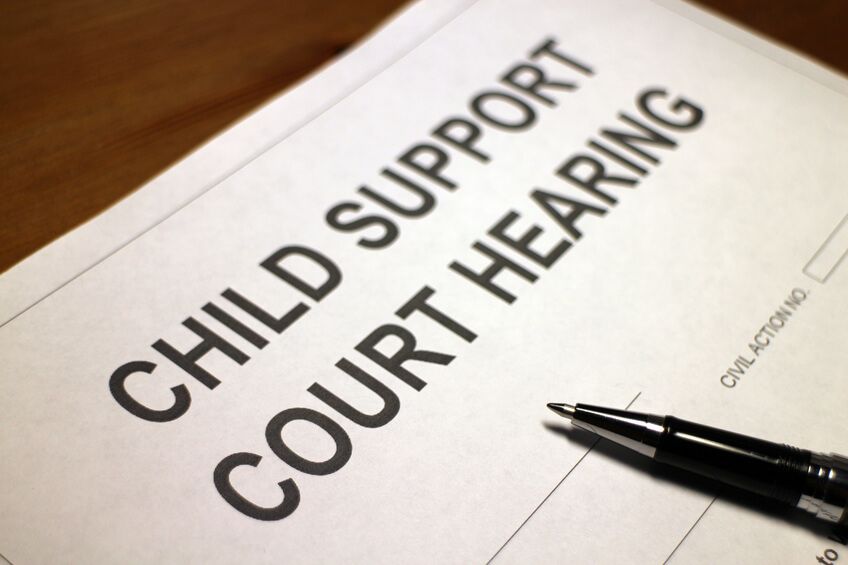
Several other factors that judges consider are related to children's need for stability after divorce.
Each Parent's Living Situation
There's a bit of a chicken-and-egg dilemma surrounding the issue of which parent keeps the family home and how that affects custody. Often, the judge awards the home to the parent with physical custody of the children, because that will provide stability and continuity in the children's lives. Other times, the judge awards custody to the parent who's going to stay in the family home, for the same reason.
Whether you're the "out-parent" (the one who isn't staying in the family home), or neither you nor your ex were able to keep the house after divorce, you'll need to prove that your current living situation would be a good place for the children to spend a lot of time if you want primary or shared custody. Don't expect to get that result if you're crashing in your best friend's guest room while you get back on your feet after the divorce.
At the same time, most judges will try to avoid penalizing parents who can't afford a nice home with an ideal set-up for kids. (It's also worth noting that the child support laws in many states allow judges to consider the differences in living standards between the parents' households when they're deciding on the amount of child support in cases where the kids will spend time with both parents.)
How Far Apart the Parents Live From Each Other
The proximity of your home to your spouse's may also factor in to the judge's custody decision. The closer you are to each other, the more likely it is that the judge will order a time-sharing plan that gives both parents significant time with the kids. When parents live in the same community, their children can continue with their same social, sports, and religious activities regardless of which parent they're staying with on which day. Geographical distance becomes more important as kids get older and maintain stronger bonds with their friends.
It's also less taxing on the children to go back and forth between parents who don't live far apart.
The Children's Preferences
Depending on the state and the children's maturity, judges may talk to kids to find out where they want to live and how much time they want to spend with each parent. Or judges may learn about the children's opinions from a custody evaluator.
Some states require judges to consider children's custody preferences when they've reached a certain age, but they may listen to younger children's view when it's appropriate. In other states, the requirement isn't about the child's age as much as the ability to express an opinion based on sound reasoning—not on things like which parent will let them stay up late.
Still other states disapprove of bringing the children into custody decisions at all.
Does the Age of a Child Matter in Custody Decisions?
The "tender years" doctrine—the idea that young children should stay with their mothers—has long been officially out of fashion.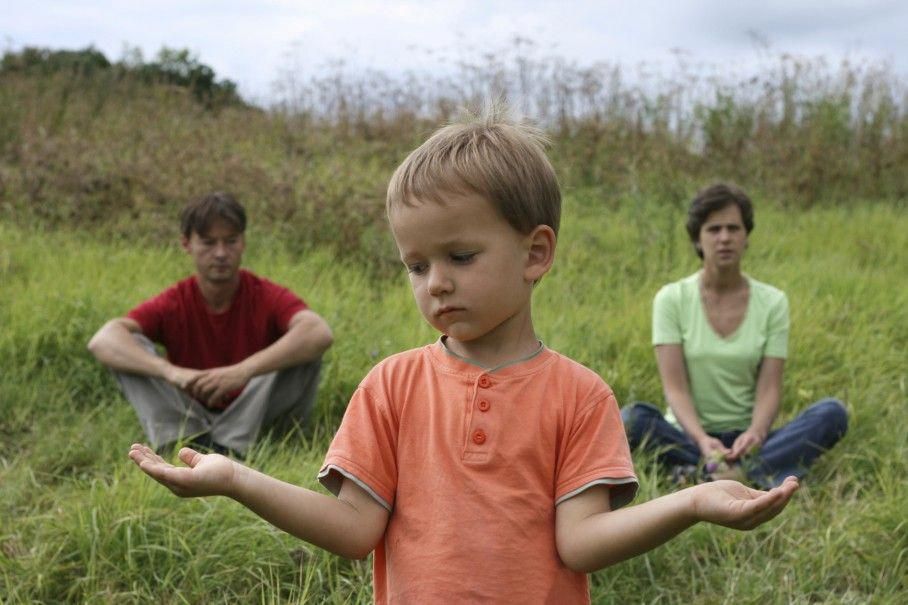 The gender of the parents is not a factor to be considered in custody decisions, but some states still allow judges to consider the children's age. And some judges continue to believe that younger children should live with their mothers, especially when the mother has been the primary caregiver. Certainly, it's not likely that a father would be awarded sole custody of a nursing baby.
The gender of the parents is not a factor to be considered in custody decisions, but some states still allow judges to consider the children's age. And some judges continue to believe that younger children should live with their mothers, especially when the mother has been the primary caregiver. Certainly, it's not likely that a father would be awarded sole custody of a nursing baby.
Answers to questions of guardianship and guardianship
1. How can I register as a candidate for adoptive parents in the Department of Social Policy No. 20, given the status of the city (ZATO) .
You have the right to register with the Office as a candidate for adoptive parents without coming to the city of Novouralsk. To do this, you need to send scanned copies of the documents to our address, the documents must be accompanied by an application addressed to the head of the Department, as well as a copy of the passport, for you to enter the city if necessary.
You can get more detailed information from the specialist Akuz Valery Vasilyevich by phone (34370) 5-40-70 (ext. 301).
2 . The father of the child lives outside the city of Novouralsk, does not have a pass to the city, the mother of the child does not want to issue a pass to the city, how can one get into the city and communicate with the child .
Article 66 of the Family Code of the Russian Federation defines the procedure for exercising parental rights by a parent living separately from the child
1. A parent who lives separately from the child has the right to communicate with the child, participate in his upbringing and resolve issues of the child's education.
The parent with whom the child lives must not interfere with the communication of the child with the other parent, if such communication does not harm the physical and mental health of the child, his moral development.
2. Parents have the right to conclude an agreement in writing on the procedure for exercising parental rights by a parent living separately from the child.
Parents have the right to conclude an agreement in writing on the procedure for exercising parental rights by a parent living separately from the child.
If the parents cannot reach an agreement, the dispute is resolved by the court with the participation of the guardianship and guardianship authority at the request of the parents (one of them).
Thus, if the child's mother intentionally interferes with your communication with the child, you need to apply to the Novouralsk City Court with a claim to determine the procedure for communicating with the child.
After the entry into force of the court decision, and if it indicates the place of communication the city of Novouralsk, then you have the right to contact the city regime service to resolve the issue of obtaining permission to enter the city.
3. In what case is guardianship established over an adult citizen .
Establishment of guardianship over an adult citizen is possible only if the citizen is declared legally incompetent.
Guardianship is recognized as a form of placement of citizens recognized by the court as incapable, in which the citizens (guardians) appointed by the guardianship and guardianship authority are the legal representatives of the wards and perform all legally significant actions on their behalf and in their interests (clause 1, article 2 of the Law of April 24 .2008 N 48-FZ).
An incapacitated citizen is a citizen recognized as such by a court due to the fact that, due to a mental disorder, he cannot understand the meaning of his actions or manage them (clause 1, article 29 of the Civil Code of the Russian Federation; clause 1, article 2 of Law N 48-FZ).
Guardianship of citizens declared legally incompetent due to a mental disorder is established by guardianship and guardianship authorities (Article 32 of the Civil Code of the Russian Federation).
Guardians of an incapacitated adult citizen can only be adult capable citizens who are not deprived of parental rights and who do not have a criminal record at the time of establishment of guardianship for an intentional crime against the life or health of citizens (clause 2 of article 35 of the Civil Code of the Russian Federation).
A case on recognizing a citizen as incapacitated due to a mental disorder can be initiated in court on the basis of an application from his family members, close relatives (parents, children, brothers, sisters), regardless of their joint residence, guardianship and guardianship authority, medical organization providing psychiatric assistance, or a stationary social service institution for persons suffering from mental disorders (Article 281 of the Code of Civil Procedure of the Russian Federation of the Russian Federation).
4. Is it possible to establish guardianship over a lying disabled person?
Guardianship is not established over capable citizens.
5. Is any payment provided for the guardian of an incapacitated citizen .
Unfortunately, currently in the territory of the Sverdlovsk region, payments to guardians of incapacitated citizens are not provided.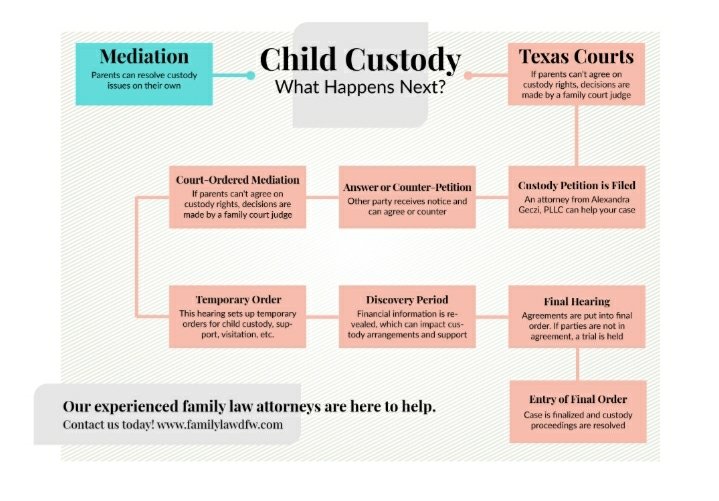
6 Can a parent formally abandon their child .
The legislation of the Russian Federation does not provide for such a concept as the abandonment of children by parents.
According to Art. 69 of the Family Code of Russia, parents (one of them) may be deprived of parental rights in court, while obligations remain, in particular, the obligation to pay child support.
rights of relatives - Legal advice
Pavel Kucherov (Vladivostok) 06/24/2022 Heading: Family
I am 19 years old. My sister is under the care of an uncle and lives with him. I live separately from her. Can I take her to my place? What can I do if my guardian refuses to do so? What rights do I have?
Guardianship, Minor
Tatyana Sayapina
Consultations: 34
By virtue of paragraph 1 of Art. 55 of the Family Code of the Russian Federation "the child has the right to communicate with both parents, grandfather, grandmother, brothers, sisters and other relatives. " Just like “grandfather, grandmother, brothers, sisters and other relatives have the right to communicate with the child” (clause 1, article 67 of the Family Code of the Russian Federation).
" Just like “grandfather, grandmother, brothers, sisters and other relatives have the right to communicate with the child” (clause 1, article 67 of the Family Code of the Russian Federation).
The guardian has no right to interfere with communication between brother and sister, otherwise he may be held liable under Art. 5.35 of the RF Code of Administrative Offenses. If the guardian interferes with your communication with your sister, you can file a complaint with the guardianship and guardianship authorities (clause 3, article 148.1 of the Family Code of the Russian Federation). However, this applies to communication in general.
Based on the provisions of paragraph 5 of Art. 148.1 of the Family Code of the Russian Federation, “a guardian or custodian has no right to prevent a child from communicating with his parents and other relatives, unless such communication is not in the interests of the child.” The fact that the guardian does not allow the brother to take the sister to visit him seems to be acceptable in principle. In this case, we are talking about the possibility of finding a child in another home for a certain period. And since, by virtue of Art. 25 of the Constitution of the Russian Federation, the home is inviolable, the guardian will not be able to control her and your behavior towards her, while the guardian is responsible for her as a child and can be removed from the performance of the duties of the guardian assigned to him, including in case of improper performance (Art. .29Federal Law No. 48-FZ of April 24, 2008 "On guardianship and guardianship", art. 39 of the Civil Code of the Russian Federation), so he may well consider that the sister’s visit to her brother is contrary to the interests of the child.
In this case, we are talking about the possibility of finding a child in another home for a certain period. And since, by virtue of Art. 25 of the Constitution of the Russian Federation, the home is inviolable, the guardian will not be able to control her and your behavior towards her, while the guardian is responsible for her as a child and can be removed from the performance of the duties of the guardian assigned to him, including in case of improper performance (Art. .29Federal Law No. 48-FZ of April 24, 2008 "On guardianship and guardianship", art. 39 of the Civil Code of the Russian Federation), so he may well consider that the sister’s visit to her brother is contrary to the interests of the child.
Does the guardianship have the right to refuse to take the sister away from the orphanage? The fact is that taking into account the opinion of a child who has reached the age of 10 is mandatory, except in cases where this is contrary to the interests of the child (Article 57 of the Family Code of the Russian Federation). At the same time, the criteria under which such communication is contrary to the interests of the child are not directly defined in the legislation, just as the conditions for ensuring the “best interests of the child” are not defined. In paragraph 1 of Art. 3 of the Convention on the Rights of the Child (approved by the UN General Assembly on 20 November 1989, entered into force for the USSR on September 15, 1990) provides: “in all actions concerning children, whether they are undertaken by public or private institutions dealing with social welfare issues, courts, administrative or legislative bodies, priority is given to the best interests of the child." In practice, the need to ensure the “best interests of the child” is mainly referred to by the European Court of Human Rights (ECHR) (see, for example, paragraph 55 of the judgment of the ECHR dated 12.11.2019in the case "A. v. the Russian Federation” (complaint no. 37735/09), judgment of the ECtHR dated 11.12.2014 in the case “Gromadka and Gromadkova v.
At the same time, the criteria under which such communication is contrary to the interests of the child are not directly defined in the legislation, just as the conditions for ensuring the “best interests of the child” are not defined. In paragraph 1 of Art. 3 of the Convention on the Rights of the Child (approved by the UN General Assembly on 20 November 1989, entered into force for the USSR on September 15, 1990) provides: “in all actions concerning children, whether they are undertaken by public or private institutions dealing with social welfare issues, courts, administrative or legislative bodies, priority is given to the best interests of the child." In practice, the need to ensure the “best interests of the child” is mainly referred to by the European Court of Human Rights (ECHR) (see, for example, paragraph 55 of the judgment of the ECHR dated 12.11.2019in the case "A. v. the Russian Federation” (complaint no. 37735/09), judgment of the ECtHR dated 11.12.2014 in the case “Gromadka and Gromadkova v. the Russian Federation” (complaint no. 22909/10), etc.).
the Russian Federation” (complaint no. 22909/10), etc.).
Taking into account the difficult conditions and a number of restrictions at the international level, it seems important to prescribe the criteria for ensuring the “best interests of the child” in the Family Code of the Russian Federation. This will fill the legislative gap in this part, as well as reduce ambiguities in the communication of the child, his close relatives and other persons in practice (after all, the law also does not provide for the possibility of communication with the child of persons who provide special assistance to the child in resolving some issues, for example, they help in case of his illness, etc., but they are not relatives). As a result, the specifics of ensuring the “best interests of the child” remain in each specific case at the discretion, first of all, of the guardian (if a complaint is filed against him, the guardianship and guardianship authorities), and then the court considering the specific case.

